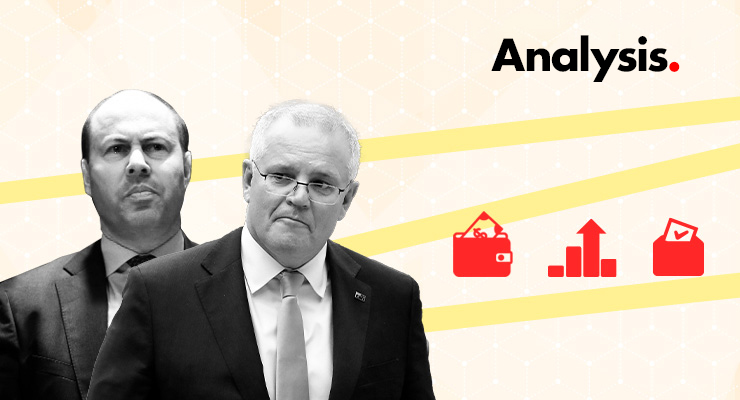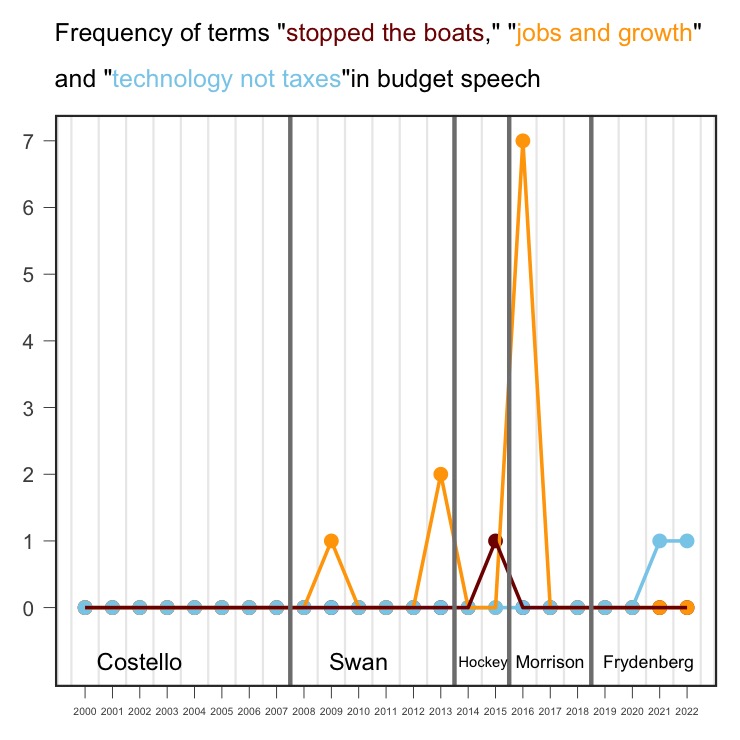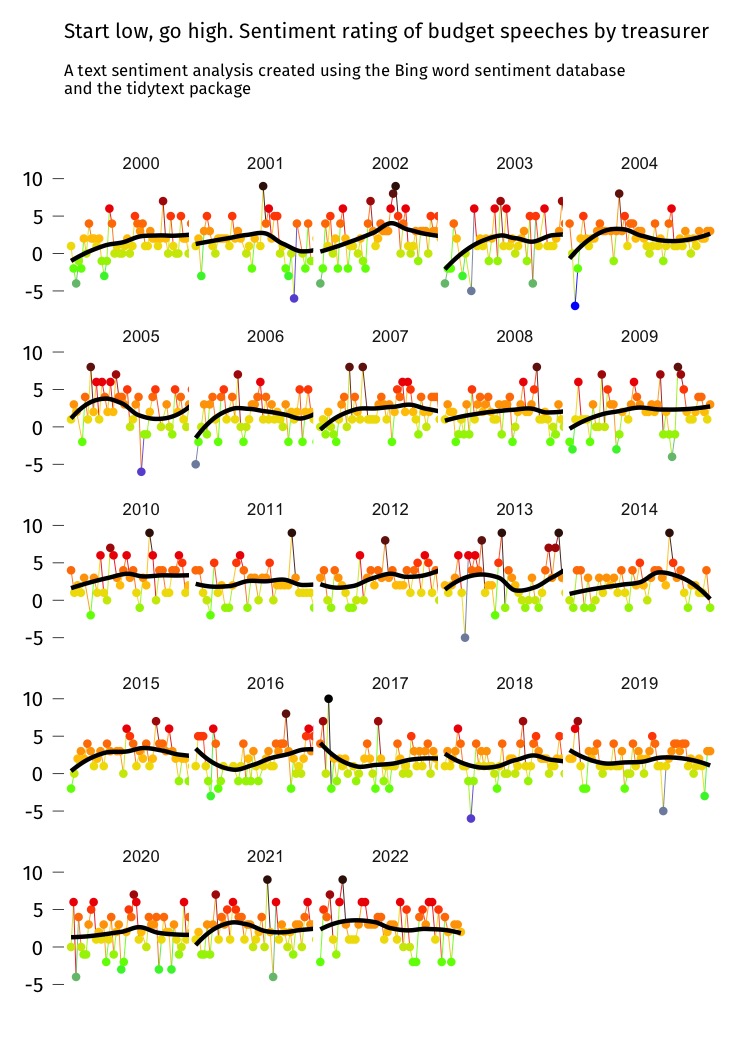
Read all the usual budget coverage? Here’s something completely different: I text-mined the budget speeches back to 2000 and fed them into the computer. Here’s what the algorithm saw.
Let’s start with a simple one: how does the vocabulary used in 2022’s speech contrast with the effort by Joe Hockey in 2014?
As the next graph shows, Josh Frydenberg made far more references to “Australians” (aka voters!) than Hockey. While Hockey, freshly installed on the government benches, made more references to “government” and his plans to “build” (which, as we know, never came to fruition — that budget was famous for being the least popular in history).

(Please excuse the lower-case words in the graphics, the software — R and RStudio, running the package tidytext, in case you are interested — insists on it.)
We can also track the popularity of certain terms throughout time. Take “cost of living”: the next graph shows cost of living was a concern during Wayne Swan’s era as treasurer — remember the fuss over $100 legs of lamb and electricity prices? — but that level of furore is nothing compared to now.

Frydenberg uttered the phrase “cost of living” no fewer than nine times during his speech. The graph also shows that when it comes to cost of living, the focus is fuel excise, not childcare.
We can also look at some of the famous three-word slogans of Australian political history. It hints that slogans wear out fast if you use them too much. “Jobs and growth” became a joke after Morrison’s debut as treasurer and was put out to pasture. Indeed, slogans are not as prevalent as you might think. Perhaps a budget speech is the last vestige of formality in our political discourse.

The software also permits sentiment analysis. It’s a simple approach that assigns positive scores for positive words and negative scores for negative words. Despite the simplicity of the approach, it can yield useful insights. We use a lexicon developed by a US professor of linguistics named Bing Liu — the “bing lexicon”.
The following graph shows the sentiment expressed in the last 23 budget speeches. You see highs and lows, with most treasurers adopting a fairly normal pattern of starting out negative by laying out the country’s problems (they labour this point particularly after a change of government) before explaining how their budget brilliantly solves them.

Swan is the most positive of the orators to have ever occupied the treasurer’s office over the past two decades. Morrison is the glummest. Frydenberg shows little negativity yet mostly moderates his positivity. Yep, he’s boring. If you had the sense he’s not exactly Paul Keating when he occupies the dispatch box — instead just a fraction monotonal — this analysis confirms it.
But does positivity matter? Morrison ascended to the prime ministership, while the relentless burst of positivity with which Wayne Swan finished his 2013 budget speech — “creating prosperity and spreading opportunity are the values that drive this Labor government every single day” — was not enough to save his government.
Might the muted tone that Josh Frydenberg ended on (“This is a time to stick to our plan”), combined with cash handouts, create just the soporific effect that makes the electorate forget about change?
If you have ideas for terms you’d like to see graphed, please hit me up on Twitter! It’s easy to make these charts and if you suggest three words or short phrases I can tweet you back the corresponding analysis.








I did suffer through Frydenburg’s speech. 50% (approx) of the time he did say ‘AustraLians’ , the other 50% of the time he said ‘AustrYENS’. No money in the Budget for elocution lessions or speech therapy. And let’s not think about the Be-Yuns of $$ being wasted.
Austrians?
No, Strayans!
As my rule for the last sevrral years I changed channels when Fraudenberg or any of the criminal court appear on the tv. So I am relying on commentators and interpreters to tell me all about it.
Thanks for watching it for me. I could not have sat thru it.
All pretty unremarkable and predictable. But Jason, do put away the expression ‘drill down’, or let the editor/whomever know; it’s becoming as hackneyed as ‘iconic’, in fact it almost is ‘iconic’. Like nearly everything else.
Along with “Brutal” and “conflate”.
Why settle for “Australians”, when you can use the far more loaded “hard working Australian families”?
It’s ok Jason, I’m quite comfortable with the use of lower case text.
This is especially so when used as the SI Units abbreviation for “kilo”, representing 1000, as in $10k (ten thousand dollars) rather than $10K (which is 10 degrees Kelvin (plus a superfluous $ sign) and very, very cold).